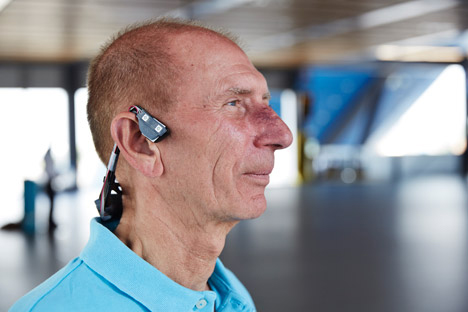
Navigating an urban landscape is difficult enough, but doing it without the benefit of sight is confusing and can be dangerous. Microsoft teamed up with research group Future Cities Catapult to create a headset that creates a multi-layered soundscape to help those with visual impairments get around. The Cities Unlocked project uses a smartphone and bone conduction sound to provide information about the wearer’s surroundings.
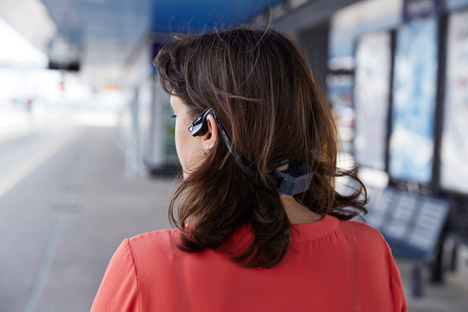
The behind-the-head headset features two small nodes that fit just in front of each ear to transmit sound through the wearer’s bones. This type of sound delivery is more efficient than sounds that travel through the air, and the technology allows the wearer to hear both the headset’s cues and the ambient noises around them.
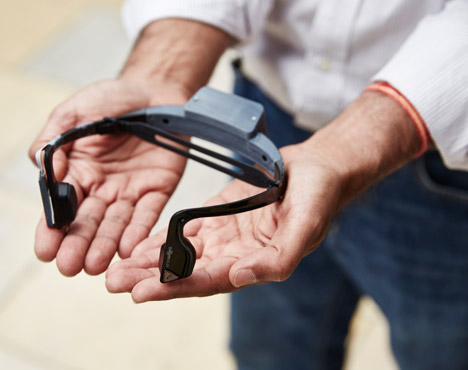
Each headset is custom made using Microsoft’s Kinect camera. The camera scans the wearer’s head to determine the precise location of the wearer’s ear canals. The nodes are designed to fit in front of the ear canals to bypass the eardrums altogether. This precise positioning allows the headset to create noises that seem to come from a certain direction. If a wearer is headed in the wrong direction, the headset can create a sound coming from the correct direction which cues the wearer to turn that way.
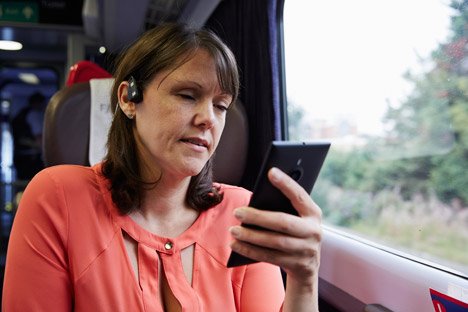
The headset can name nearby landmarks, buildings, and businesses to help the wearer keep their bearings. It is connected to a smartphone via Bluetooth and relies on information from location and navigation services. Before setting out, a wearer can program in a route and the headset will guide them to the location using verbal directions and sound cues.
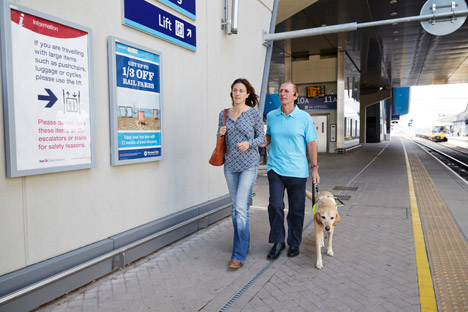
Part of the project’s vision is to place information beacons in strategic locations throughout urban areas. These beacons would provide valuable information about transportation schedules and other helpful mobility tips.
The initiative is aimed not only at people who are commuting to and from work; it is meant to help tourists and those who are new to a city. Getting around a new city with sight loss is a huge and scary undertaking, but the help provided by the Cities Unlocked project could help visually impaired people attain a whole new level of confidence and independence.

